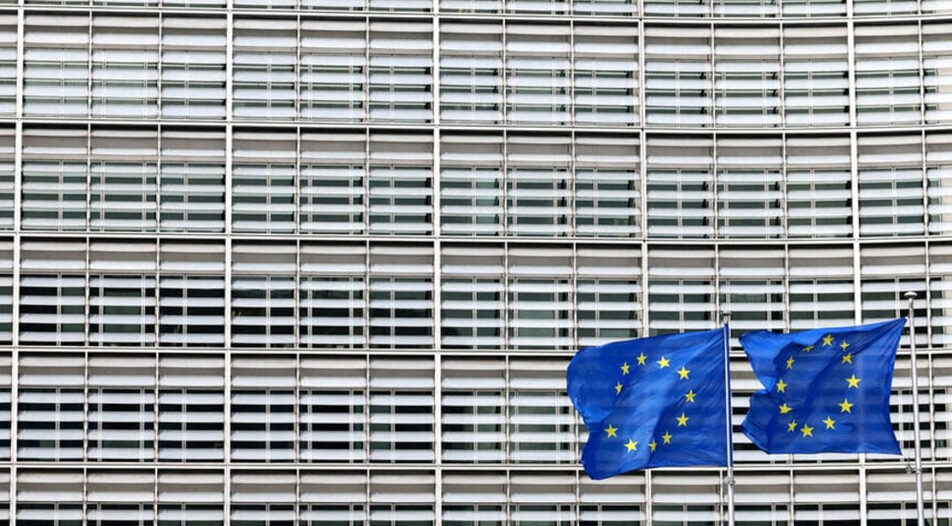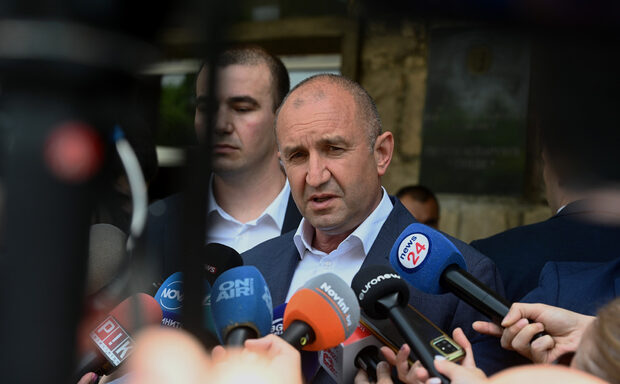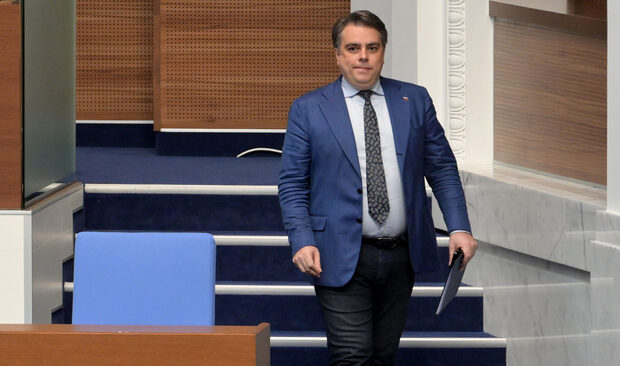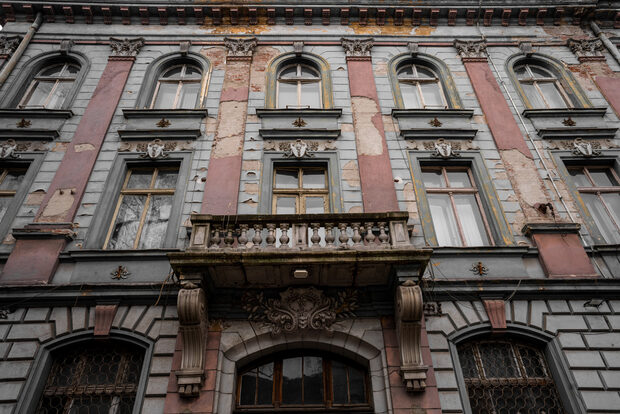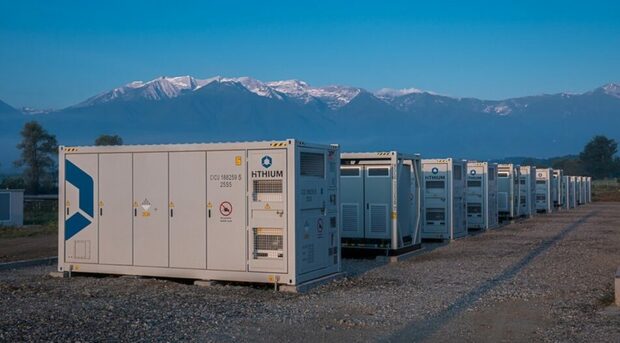Are we ever going to participate in European politics? I mean, really participate - as in be a player, take decisions, make suggestions, defend interests, have a visible seat at the table (no, not talking about N.Macedonia).
That's the question that's been bugging me these days, reading Politico and listening to all the talk in Brussels and around European capitals about the upcoming Commission, the distributions of posts and political tradeoffs. Europe is on the verge of change and there are many decisions to be taken: the Green deal is all but dead, the industrial landscape is shifting, subsidies are rolling, restrictions are coming, Russia is near and China is everywhere.
Yet there is one capital which is not buzzing at all, and you've guessed it - it's Sofia.
I have covered, as a reporter, the three times we've nominated a Commissioner. I remember the spectacular fall from grace of the first GERB nominee Rumiana Zheleva (whose PR has been mad at me for quite some time, as if I personally failed her boss in the EP hearing). Zheleva was implicated in a scandal with a company she partly owned, and then failed to answer MEP questions, acting rather arrogantly. This first clash with reality humbled GERB for a while.
I remember the stage entrance of Kristalina Georgieva as a savior - the only important appointment by Borissov not motivated by financial or personal gain or loyalty. She did so well that Jean-Claude Juncker basically twisted the hands of the next PM - Plamen Oresharski, into nominating her again, over the wishes of the head of PES - Sergey Stanishev - who coveted the position himself. Georgieva went on to become the head of IMF and we spent the next several months with Borissov wondering which of his loyal subordinates would replace her. In the end that honor fell to Mariya Gabriel.
All in all, Bulgaria struggled every time, except with Kristalina, to leave any lasting legacy on the European stage. From what I can see, it will struggle yet again.
For one, Borissov is back at the helm - not officially, still, but nonetheless there. The fact that he doesn't speak English is not even the most important thing. His unwillingness to nominate really capable people for high positions is a far bigger obstacle. The fact that he is an ideological vacuum, caring only about his own survival doesn't help, either.
Bulgaria yet again lacks a government, a vision and a list of talented people for important jobs. As it stumbles in the corridors of democracy, so it will stumble in Brussels pathways. We've sent the caretaker Glavchev to the big boys' meeting this week and he will be standing there like a virgin at a beach party - unable to take any decisions, a fleeting presence no one talks to.
But, and that's been true for as long as we've been in the EU, if you're not at the table, you're on the menu.
This leads us to the current scandal - the government decided it wanted President Rumen Radev to lead the delegation for the high-level NATO summit in the US. This was a curious move, after both MRF and GERB slammed the President for being pro-Russian and calling on the caretaker cabinet to defend Bulgaria's position in DC. The theory is they wanted to force Radev to actually take a stand together with other allies in what promises to be a crucial forum.
No way, Jose
Yet in a very rare public move, the Presidency declined the offer. "While I strongly opposed the Russian aggression from day 1, I do not accept some of the positions of the cabinet regarding Bulgaria's obligations in the war", said Radev in a public statement. So back to you, Glavchev - one more beach party to attend.
Also, no government for now
Is what we hear. Borissov still does not want to put his name to a paper with MRF and some ragtag deputies from other groups to form a coalition. And the WCC-DB party certainly won't change its mind and succumb to GERB's trickery a second time.
Two other outlandish options were discussed this week - an anti-GERB/MRF coalition led by Vazrazhdane and a "government of national salvation" with the third mandate that would unite all parties, but both seem rather unlikely (to say the least). So we are getting suspiciously close to a new, seventh early vote in the autumn.
So let me show you what I can do
History is repeating itself as various state and local institutions take aim at Borissov's former partners, now foes once more. Several deputy mayors and precinct mayors in Sofia and Varna have been suspended on dubious grounds because of conflict of interests. The ex-parliamentary chief of WCC and current deputy-governor of BNB, Andrey Guyrov, has also been suspended. Sofia mayor is in the crosshairs. All in all, it looks pretty much like the old times are back again and Borissov is showing his ex-partners what to expect if they persist in being well, stubborn.
2. Economy:
Euro: we're getting there. SlowlyIt's no surprise that Bulgaria will not join the eurozone at the beginning of 2025. We're not meeting the inflation criteria, yet what's interesting is that the position in the European Commission latest Convergence Report is very positive overall. "Legislation in Bulgaria [passed in February 2024] can be considered compatible". "Bulgaria fulfils the criterion on public finances, the exchange rate criterion, the criterion on the convergence of long-term interest rates."
We're getting there, part 2.
Over the past decade, household wealth in Bulgaria has grown at one of the fastest rates in the EU, second only to Romania. This is reflected in the Actual Individual Consumption (AIC) per capita, expressed in Purchasing Power Standards (PPS), which measures it and is published by Eurostat. Data from 2023 shows that Bulgarian households have reached 73% of the EU average. This places Bulgaria second to last, just ahead of Hungary (70% of the EU average). Over ten years, the AIC indicator has increased by 22 percentage points, marking the second-fastest growth rate after Romania, where the indicator has reached 83% with a 33 percentage point increase.
Figure:
16%The housing price index in the country increased during the first three months of the year compared to the same period in 2023, according to NSI data.
3. Business:
Food Smart OrganicThe organic food producer, best known for its brands Roo'bar and Bett'r, successfully raised its capital by 19.6 million levs, with virtually 100% of the offered 1.031 million new shares subscribed. The plan is to use the nearly 20 million levs raised primarily to increase production capacity, with around 6.3 million levs allocated for this purpose.
IT
SirmaThe Bulgarian IT group "Sirma Group Holding" is acquiring a controlling stake in the Romanian software company Roweb. The deal involves 51% of Roweb's shares, a company specializing in developing web applications for the financial sector, real estate, tourism, and more.
4. Brussels
China - Beijing has promised German luxury carmakers concessions if Berlin persuades the EU to drop tariffs on Chinese electric car exports, according to rumors in Brussels amid ongoing negotiations. China has already hinted that it could impose a 25 percent levy on large European cars, a move that would hit some German companies.
Antitrust - EU watchdogs have again warned Apple over its app store practices to comply with the EU's Digital Markets Act. The move could lead to further fines for the iPhone maker, just months after it was fined 1.8 billion euro for obstructing music streaming rivals.
Ukraine - EU countries have agreed on a plan to give Ukraine 1.4 billion euro in military aid from windfall profits from frozen Russian assets - after finding a way around a veto from Hungary.
5. Energy:
1.1bn levs for 3,000MWh of battery power to be made available from autumn Against the backdrop of regular grid capacity problems and increasingly difficult power balancing, the Energy Ministry announced it is putting the long-awaited measure for stand-alone electricity storage systems up for public consultation. It is part of the EU Recovery and Resilience plan and targets micro, small, medium and large enterprises, i.e. virtually all businesses. The total budget of the scheme, known as RESTORE, is 1.1 billion levs, which is expected to be used to commission electricity storage facilities with at least 3,000 MWh of usable capacity.This will enable a significant increase in the share of solar and wind power in the energy mix and ensure the security and stability of the system - something that has been an increasingly serious problem in recent months due to the ongoing surge in new renewable projects.
6. Watch out for:
Person: Zhelyazko GagovThe newly re-elected mayor of Panagyurishte managed to achieve a second, more emphatic win over the GERB incumbent, after the court decided to repeat the election. Gagov won this time by more than 2000 votes, a big difference from the mere 20-vote margin last time.
Date:
26 JulySofia will welcome more than 500 delegates from 26 July to 2 August for a session of the most influential international scientific organization in the field of climate change - the IPCC. During the forum, scientists and policymakers will focus on urban adaptation to climate change.
Location:
Aurora SofiaThe first Chinese hotel in Sofia has started operations. Named Aurora Sofia, it is at 40 Balgarska Morava Street, near the major boulevards Todor Alexandrov and Al. Stamboliyski, Opalchenska metro station, and Mall Sofia. It is a three-star hotel, with an investment of approximately 4.5 million levs.
Zen of the week: Brendo goes to prison
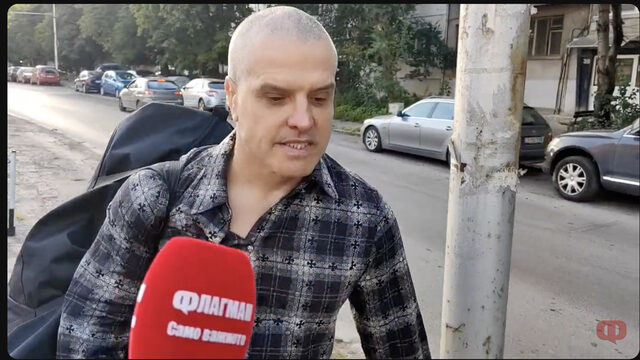
You've probably been in the following situation: you try to access some administrative service, say - pay a tax or get a permit - but you don't know which counter is the right one. So you ask the nearest clerk where to go, but you get pointed to a note above their head: "Tuk ne e informatsia", which loosely translates to "This is not an info point."
Obviously this is what you get as an answer even if you are a drug lord turning up to prison.
Evelin Banev-Brendo, internationally renowned drug trafficker, surprised everyone by surrendering in Sofia Central Prison earlier this week. Employees of the General Directorate for Execution of Punishments were stunned when he appeared at the jailhouse, with the guard on duty at the entrance refusing to let him in with the words: "This is not the order of things." Banev, who had crossed the gate, then retreated outside until the situation was clarified. He was eventually detained and taken to the Police Hospital for mandatory examinations.
Brendo is a legendary figure in the Bulgarian and European underground. An ex-sportsman, he became known as a name in drug trafficking in the 90s and the 00s. According to a lawsuit in Switzerland, Credit Suisse and others were used to launder at least 140 million euros. He had contacts in Latin America, importing cocaine in Italy, where he got 20 years in jail. He has a sentence in Romania and one in Bulgaria (albeit a much smaller one). He disappeared off the police radar six years ago, before returning to prison this week, looking visibly frayed in the video that was conveniently shot by a Burgas media, "just happening" to be waiting there.
It's funny that the most asked question was "how did he enter the country?", as if that's a problem for someone who can bring tons of cocaine into the EU. Why he gave himself up is, of course, the most relevant question and we can't help being reminded of the famous scene in "Narcos", where Pablo Escobar chooses his own prison. It seems that Bulgaria is still the place where criminals choose whether they want to go to prison, or not.
Are we ever going to participate in European politics? I mean, really participate - as in be a player, take decisions, make suggestions, defend interests, have a visible seat at the table (no, not talking about N.Macedonia).
That's the question that's been bugging me these days, reading Politico and listening to all the talk in Brussels and around European capitals about the upcoming Commission, the distributions of posts and political tradeoffs. Europe is on the verge of change and there are many decisions to be taken: the Green deal is all but dead, the industrial landscape is shifting, subsidies are rolling, restrictions are coming, Russia is near and China is everywhere.








